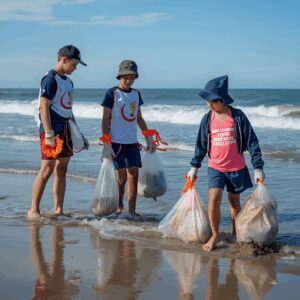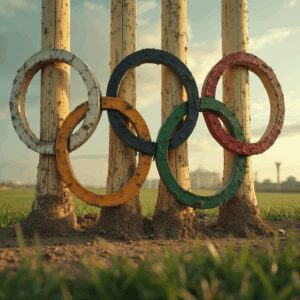The Vincentian Diaspora and Sport Development
On Sunday last the SVG Diaspora Committee of NY Inc., hosted a Panel Discussion that focused on the role of the Diaspora in sport in St Vincent and the Grenadines. The activity attracted approximately 30 persons who appeared sufficiently interested in the topic and the general well-being of Vincentian society.
The Diaspora Committee appropriately convened the Panel Discussion as the Annual Maxwell Haywood Memorial Event, part of the continuing legacy of a Vincentian who devoted his life to promoting his country and working in the collective best interests of the peoples of this developing nation.
Importantly, the idea of using the annual event for the specific purpose of addressing a role for the Diaspora in the broader national sport development process may well have emerged from the national discourse that started with a Sports Max interview of Vincentian athlete, Shafiqua Maloney. The latter’s historic achievement of a fourth place finish in the women’s 800m final, has fostered a momentum in respect of the needs of athletes and ways in which these can be addressed. The Committee seized the opportunity presented by the momentum to bring together interested persons to take the dialogue on to a new phase and hopefully, greater commitment that is sustainable.
As with all discussions, Sunday’s initiative led to an important cress-fertilisation of ideas about the state of sport in our country at present and the potential options for effective application of policies and programmes for sport development, going forward.
National Sport Structure
The absence of a clearly defined national sport structure and its implications for sport development in St Vincent and the Grenadines was highlighted as a major problem that must be addressed if we are to effect meaningful change to the way things are being done.
The absence of structure means that sport is essentially left to the whims and fancies of the leadership of the several sports associations and their membership of international and continental organisations to which they are affiliated and answerable.
There is no national sports plan even though there is a national sports policy that has been in place since the 1990s. The latter document has twice been reviewed since the new government came in place in 2001 but is not widely referenced in any national discourse. This essentially means that national sports associations are left to independently seek out application of one of the most important components – release of athletes and sports officials for sport as national duty and the waiver of duties on sport equipment.
The National Sports Council (NSC) Act remains a ‘toothless paper tiger’ seemingly uncertain of its role in national sport development. Many have forgotten that there are two major components to the Act yet for decades, only one aspect – the maintenance of sport facilities, is practised and only partially so.
The foray of the National Lotteries Authority (NLA) into the construction of sports facilities appears more in response to political imperatives than sport development per se. It does not fall within any declared national sport structure framework, even though sports associations benefit from access, from time to time. The fact that the NLA has significant financial resources allows for the facilities under its operations to consistently fare much better than those under the NSC, with the sole exception of the Arnos Vale #1 Playing Field.
No organisation can hope to carry out its mandate without an appropriate structure and the engagement of individuals equipped with the requisite skill competencies.
Athletes in the Diaspora
Sunday’s discussion also addressed the matter of athletes in the Diaspora, especially those who get there through scholarships.
There is as yet no mechanism in place that allows any single national sport association or organisation that has data on Vincentian athletes residing and training abroad. Indeed, it was agreed on Sunday that sometimes athletes are helped to attain scholarships outside the ambit of the sports associations who sport they practised. The latter are only informed about athletes abroad in schools when problems arise such as the scholarship being partial and not a full ride.
For the most part, the Diaspora Committee is often a last resort for athletes who are experiencing grave problems, at which time it is too late to pull together resources that it does not necessarily have at its disposal.
In this regard the discussion agreed to support the work that has already started, between the St Vincent and the Grenadines Olympic Committee and the Diaspora Committee to establish and maintain a database on Vincentian athletes in all sports, who are resident, training and competing abroad. Additionally, there will also be a database on all Vincentians in sport careers – sport administration, coaching, sports marketing, physiotherapy, sports medicine, sports nutrition and sports psychology, to name a few.
The intention of the agreement amongst Sunday’s discussion participants is to be able to identify Vincentians who are appropriately qualified in aspects of sport so that they can be approached to be part of a more structured arrangement designed to assist with the broader national sport development process.
Sunday’s participants agreed that the Diaspora Committee should establish a hub/point of contact for Vincentians abroad and who are willing to be involved in national development through.
Vincentian Olympian, Handal Roban, one of the panellists on Sunday’s programme, appealed to all in attendance for a level of commitment to monitoring, evaluation and learning (MEL) in respect of this specific mandate of the Diaspora Committee emergent from the discussion. This, he insisted, would allow for seeing whether or not people are genuinely committed to the ‘cause’ and the extent to which we can identify shortcomings as they occur and address them with some dispatch. It would serve as a tracking of the effectiveness of what we have all agreed to do. He called on all to ensure that Sunday’s Discussion does not remain as a ‘talk shop’, but instead, a new beginning, a new phase in our commitment to sport as a vehicle for sustainable development of St Vincent and the Grenadines.
Other Outcomes
Sunday’s discussion also called for the national sports associations to be appropriately advised by coaches and whoever else is helping Vincentian athletes to access scholarships to schools in the US and Jamaica, or anywhere else, for that matter. There must be some discussion with athletes and parents ahead of leaving local shores, so that they are all on the same page in respect of what is actually on offer and how it should be approached, prior to accepting the scholarship and leaving St Vincent and the Grenadines. This includes accessing information on the ranking of the educational institutions both academically and in sport, as well as the history of the institution’s coaches in the system.
Secondly, the Diaspora Committee, should also facilitate an orientation for the athletes on arrival in the US, to ensure a better understanding of how the system works and the facilities that would be available to them.
The Diaspora Committee would facilitate its role as a genuine Vincentian hub abroad.
It is to be very clear that the Diaspora Committee is not a financial institution, certainly not a bank. Its limited resources would be used to facilitate Vincentians abroad, as much as is possible. What is important is the access to Vincentians appropriately qualified to respond to the different identified needs of our people abroad and in as timely a manner as is possible.
We are aware that some students on scholarships have no place to stay nor relatives and/or friends with whom they can stay during the closure of colleges. Here is another area that the Disapora Committee could possibly help.
Sunday’s meeting also agreed that there is an important education and awareness-building role for the Diaspora Committee regarding maintaining contact with all Vincentians. Athletes in particular should support the SVGOC’s call for national sports associations to establish Athletes Commissions and to play active roles within them. Their voices must be heard, including inputs into discussions and decisions involving realistic approaches to address identified needs with a level of maturity, respect and integrity at all times.
The discussion on Sunday last suggested that a new, healthy approach to networking amongst Vincentians in the Diaspora would go a long way towards addressing the issues impacting athletes abroad and a genuine commitment to their resolution. The process has to be guided by patient understanding on the part of all who are willing to become engaged in nation building through sport.
Conclusion
Sunday’s discussion was not intended to be a one-off event on the anniversary of the annual lecture/event in honour of our dear friend and remarkable Vincentian, Maxwell Haywood. Indeed, if we are to truly honour Haywood’s legacy of Vincentian patriotic commitment, Sunday’s activity could only serve as the nurturing of the critically important nation building seeds that he so meticulously planted in his life’s work. It should be an honourable thing for all of us who lay claim to a genuine commitment to the development of St Vincent and the Grenadines through sport, would be sufficiently amenable to opening our minds and hearts to joining the Nelson Mandela ethos, ‘Sport has the power to change the world’, adding, one individual, one village, one society at a time.






